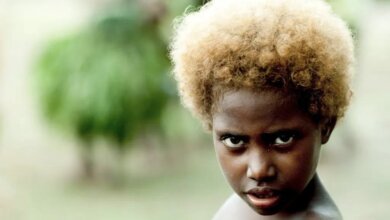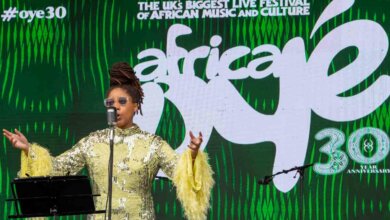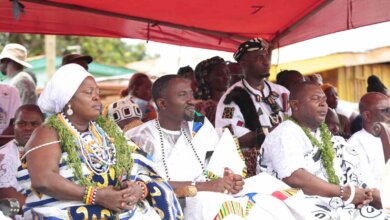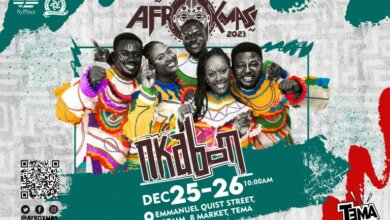Lazare Eloundou Assomo, first African to head UNESCO World Heritage
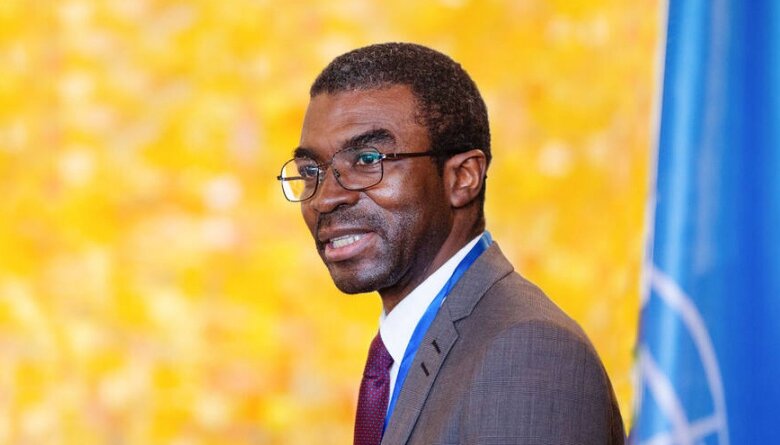
Lazare Eloundou Assomo, a Cameroonian national, was appointed as the center’s fifth director on Monday, December 6, 2021 by United Nations Educational, Scientific and Cultural organization (UNESCO) Director General Audrey Azoulay.
He is the center’s first African director replacing Mechtild Rössler, who retired on September 30, 2021. In early January 2022, Lazare Eloundou Assomo took over as Director of the World Heritage Centre.
“The 50th anniversary of the World Heritage Convention, which will be celebrated in November 2022, will be an opportunity for a great retrospective but also for a collective reflection on the best ways to make our approach prosper over the coming 50 years. In particular, we have two challenges to meet: on the one hand, to make the World Heritage List ever more representative of the world’s cultural and geographical diversity; on the other hand, to strengthen the protection of listed sites inscribed in the face of the new challenges of our age, linked to development, conflict and climate change.”
— Lazare Eloundou Assomo, new Director of the World Heritage Centre of UNESCO
Mr. Eloundou Assomo holds degrees in architecture and urban planning from the Grenoble School of Architecture in France (DEA Grenoble 1).
Read Also: Africa’s Heritage is Humanity’s – and it’s been overlooked for too long | Sada Mire
In 1996, he began his work as an associate researcher at the Grenoble School of Architecture’s Centre for Earthen Construction. He was thereafter in charge of implementing habitat initiatives in Africa, as well as the educational coordination of UNESCO’s World Heritage Centre and ICCROM’s Africa 2009 conservation program.
He joined UNESCO in 2003 as part of the World Heritage Centre’s Africa Unit, where he helped to establish the African World Heritage Fund and the World Heritage Earthen Architecture Programme (WHEAP).
He was the Head of the World Heritage Centre’s Africa Unit from 2008 to 2013. During this time, he oversaw several restoration projects in Mozambique (the Fortress of Ilha, a UNESCO World Heritage Site), Uganda, and Mali, as well as regional capacity-building programs.
He co-authored the book ‘African World Heritage: A Remarkable Diversity,’ which was released by UNESCO in 2012 and co-authored with Ishanlosen Odiaua.He joined the UNESCO office in Bamako in 2013, and became its director in 2014. After that, he became the head representative of UNESCO in Mali.
Read Also: Food and culture: A case study of Ghana’s Etor/Otor (Recipe Included)
He was in charge of protecting Mali’s cultural legacy while the country was engulfed in a brutal military conflict. He was instrumental in the restoration of Timbuktu’s mausoleums and the preservation of historic texts.
In 2016, he returned to UNESCO Headquarters in Paris, first as Deputy Director of the Heritage Division and then as Director of the World Heritage Centre.
In 2018, he was named Director of Culture and Emergencies, where he is responsible for managing emergency conservation responses to heritage harmed by conflicts and disasters, as well as cultural property restitution under the 1970 Convention.
About the World Heritage Centre
Created in 1992, the Centre coordinates all actions related to World Heritage within UNESCO. It is responsible for the day-to-day management of the Convention (adopted in 1972, 50 years next year), for organizing the annual sessions of the World Heritage Committee and its Bureau, and it advises States Parties on the preparation of their nominations.
Centre coordinates the process of reporting on the state of conservation of sites and urgent actions required when a site is under threat. It also organizes international assistance from the World Heritage Fund upon request.
Finally, the World Heritage Centre is in charge of public information about World Heritage and, in this capacity, develops educational material to raise awareness of heritage protection among young people.
There are 1154 UNESCO World Heritage Sites in 167 countries at the moment. There are 43 transboundary sites, 52 endangered sites, 897 cultural sites, 218 natural sites, and 39 mixed sites among these.
Source: UNESCO
Abeeb Lekan Sodiq is a Managing Editor & Writer at theafricandream.net. He is as well a Graphics Designer and also known as Arakunrin Lekan.

